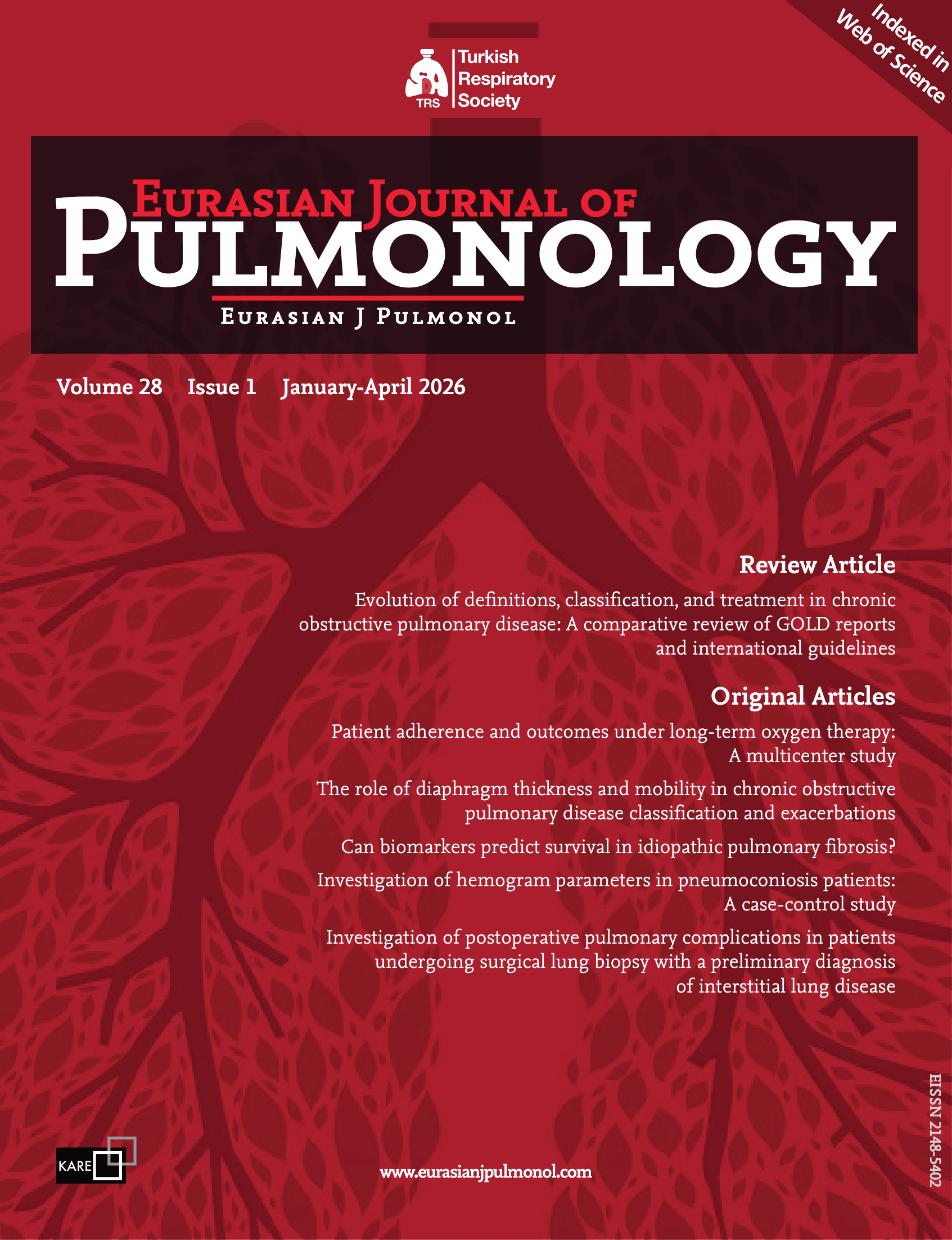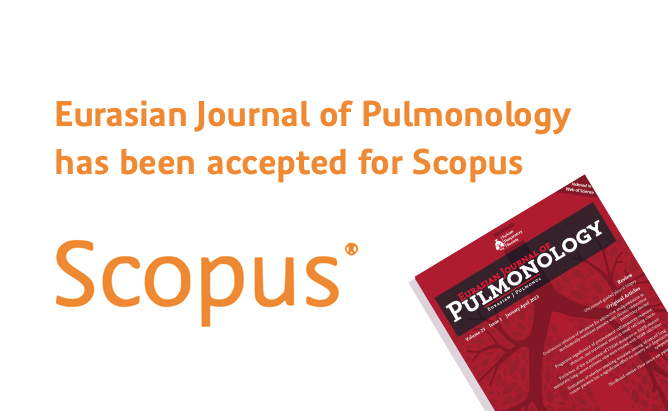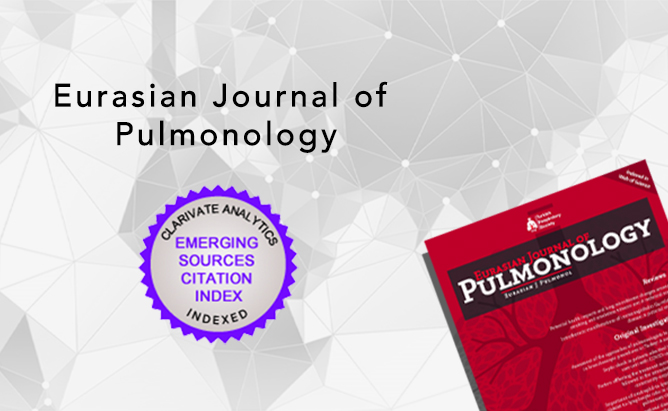2Department of Pulmonology, Çanakkale 18 Mart University, Çanakkale, Türkiye
3Department of Chemistry, Çanakkale 18 Mart University, Çanakkale, Türkiye
4Department of Radiology, Çanakkale 18 Mart University, Çanakkale, Türkiye
Abstract
BACKGROUND AND AIM: Chronic Obstructive Pulmonary Disease (COPD) is a respiratory condition characterized by a chronic inflammatory response and is a common cause of mortality. Recent studies have begun to elucidate the role of the complement system in the pathogenesis of COPD. The primary goal of COPD treatment has been symptom control, but the importance of phenotypic assessments and classifications in COPD management is re-emerging. In this study, we investigate the association between the phenotypic characteristics and course of COPD and the complement system, focusing on serum Complement Component 3 (C3) levels.
METHODS: The study included 81 patients. To measure complement C3 levels, a single tube of blood was collected from each participant. Body Mass Index (BMI), COPD Assessment Test (CAT), and modified Medical Research Council (mMRC) dyspnea scale were calculated. Hemograms, pulmonary function tests, and lung tomography scans were retrospectively reviewed.
RESULTS: An increase in neutrophil predominance in serum was observed in advanced grades of COPD during stable periods. Lymphocyte counts and percentages were lower in advanced grades (p=0.041, p=0.016, p=0.032). Higher C3 levels were found in the group with a higher neutrophil count (p=0.032). The mean C3 level was higher in the high BMI group (p=0.049). Tomography scans were available for 55 patients. A lower mean C3 level was observed in the group with increased emphysema percentage, though the difference was not
significant. The COPD grade, Forced Expiratory Volume in 1 second (FEV1) value, CAT-mMRC score, smoking status, exacerbation frequency, and inhaled steroid use did not show a significant correlation with C3 levels.
CONCLUSIONS: We reinforce the notion of the complement system’s significant role in COPD’s pathogenesis. Phenotypic assessments reflect the inflammatory pathogenetic process more accurately than symptom-based assessments. We advocate for the value of phenotypic assessment in evaluating COPD treatments, particularly from the perspective of immune therapies, and in planning individualized treatments.




 Şahinur Aycan Alkan-
Şahinur Aycan Alkan- 




